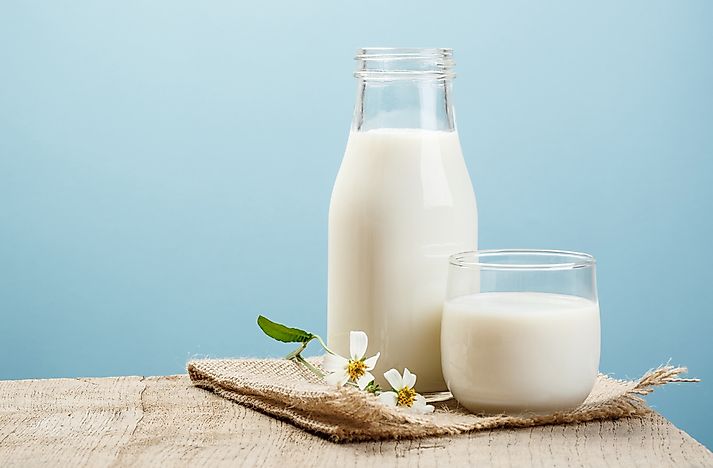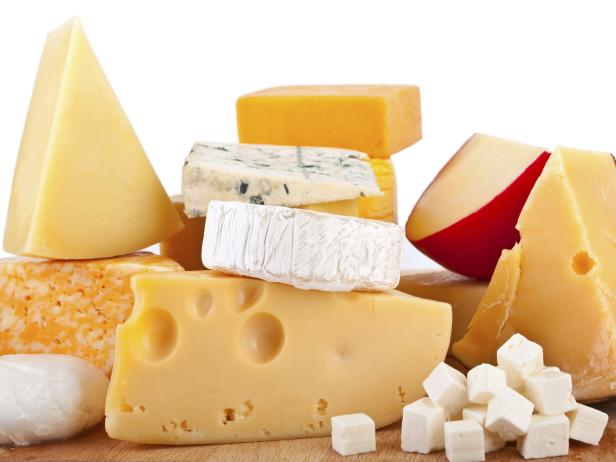What Is Protein?
 The term ‘protein’ refers to a type of molecule in food that can be separated down into amino acids.
The term ‘protein’ refers to a type of molecule in food that can be separated down into amino acids.
- The human body requires twenty amino acids – as a biological machine it can create (or synthesize) eleven of these itself. Nevertheless, there are nine, called ‘essential amino acids’ that the body cannot produce and has to gain through the consumption of food.
- These ‘essential amino acids’ are Tryptophan, Threonine, Isoleucine, Leucine, Lysine, Methionine, Phenylalanine, Valine and Histidine.
- When you consume food, the body breaks down the protein in food to create the amino acids that it needs.

What Is The Importance Of Protein In Your Diet?
Why do you think one should care about getting an adequate amount of protein? Let’s have a look at the role of protein in the body –- It gives the exact structure for muscles, hair, and blood.
- Repairs worn-out body tissue & proteins resulting in general “wear and tear” of the body.
- Contributes to an emergency source of energy when there is not enough carbohydrate or fat in your diet.
- Helps transport essential nutrients like iron and cholesterol around your body.
- Enhances your immune system.
- Builds cardiac (heart) muscle, contributes to many essential body secretions such as hormones and enzymes.
- Can help with weight loss as protein is very satiating and by eating protein at the same time as carbohydrates, you slow down the spike in glucose and insulin that comes after eating carbohydrates on their own.
What Are The Different Types Of Proteins?
Protein is basically classified into 2 types which are commonly known as good quality and poor quality of protein, I am sure you must be wondering why I am talking about quality here? You can read yourself in below lines –Complete Protein
!st type of protein is a complete protein and it is called so because it has all 9 essential amino acids which are required for muscle building and protein utilization in the body. It is also known as first-class proteins which gives all nine essential acids that your bodies can’t create itself. The top sources of 1st class proteins include animal products like meat, poultry, and seafood. Few examples include steak, turkey and also salmon fish. Other animal products, like eggs and low-fat dairy, are also good sources of complete protein. But, one thing you have to remember is that some high-protein foods may also be large in saturated fat. Steak, for instance, has 40 grams of protein but 12 grams of saturated fat. To eat more nutritious complete proteins, the Indian Department of Agriculture recommends selecting lean or low-fat meat and poultry. You can also consume seafood two times in a week to increase protein along with good fats. Using healthy cooking methods such as roasting and broiling will avoid the addition of extra fats.Incomplete Protein
They are also called as second-class proteins. Incomplete proteins lack one or number of essential amino acids. Almost all plant proteins are known as incomplete proteins. Beans, seeds, nuts, peas, soy products and few grains are plant proteins. Examples of beans and peas are white beans, chickpeas, hummus and also the green peas. Seeds and nuts include foods such as almonds, walnuts and sunflower seeds. Indian studies suggest consuming unsalted nuts and seeds to avoid extra sodium. Few examples of soy products are tofu, tempeh and soy milk. Quinoa, a seed that’s consumed as a grain, is an exceptionally rich source of protein. If you don’t consume animal products, it’s important to eat many different types of plant proteins to get adequate essential amino acids. A small tip is you can combine carbohydrate and second class protein also at times to convert the same into complete protein and the best example for the same is rice and dal combination. Hence always remember to add a source of protein with your each and every meal to make it wholesome and complete. Now after discussing the type of protein let me take you to the best form of protein which is very rich in protein and pure form which is Whey protein. Whey protein is basically of 3 different types – whey protein isolate, whey protein concentrate and whey protein hydrosylate. All these 3 types of whey protein are complete proteins and very high in protein content. But out of these three whey protein isolate is the one with maximum protein absorption and only 2-5% of fat. Below are a few food sources via which you can get this protein.What Are The Sources Of Whey Protein Isolate?
 Generally, a whey protein isolate is obtained from milk and serves as a source of complete protein, which means it gives all the essential amino acids. Whey digests very fastly, unlike the other component of milk, called as casein protein.
A natural by-product of the cheese-making method, whey protein isolate can be concentrated and isolated from the other elements in milk and then used to make powder supplements.
Protein powders prepared from whey protein isolate have become the number one selling bodybuilding supplement because of whey’s capability to supplement an exercise program to support healthy muscle tissue.
Many dairy products also organically contain whey protein isolate, so consuming dairy also boosts your whey intake.
Generally, a whey protein isolate is obtained from milk and serves as a source of complete protein, which means it gives all the essential amino acids. Whey digests very fastly, unlike the other component of milk, called as casein protein.
A natural by-product of the cheese-making method, whey protein isolate can be concentrated and isolated from the other elements in milk and then used to make powder supplements.
Protein powders prepared from whey protein isolate have become the number one selling bodybuilding supplement because of whey’s capability to supplement an exercise program to support healthy muscle tissue.
Many dairy products also organically contain whey protein isolate, so consuming dairy also boosts your whey intake.
Ricotta Cheese
 Ricotta cheese generally contains the most whey protein isolate of any whole food because it is made from whey protein.
It includes the less amount of fat and at the same time contain about 28 grams of whey protein isolate per cup.
Ricotta cheese is prepared from concentrate whey protein and also whey protein isolate, which is a waste product from processing dairy milk. Ricotta cheese could be exchanged for the protein drinks either in desserts or shakes.
Ricotta cheese is one among the food source with the most plentiful source of whey protein isolate.
Ricotta cheese generally contains the most whey protein isolate of any whole food because it is made from whey protein.
It includes the less amount of fat and at the same time contain about 28 grams of whey protein isolate per cup.
Ricotta cheese is prepared from concentrate whey protein and also whey protein isolate, which is a waste product from processing dairy milk. Ricotta cheese could be exchanged for the protein drinks either in desserts or shakes.
Ricotta cheese is one among the food source with the most plentiful source of whey protein isolate.
Milk
 It is contemplated nature’s perfect growth-inducing protein, milk consists of both slow-digesting casein and fast-digesting whey protein isolate. In pure cow’s milk, this ratio tips way toward the casein protein content, matching up to 80 percent.
Which means that 20 percent of cow’s milk obtains from whey protein isolate. Milk, nevertheless, contains a large amount of lactose and may cause allergic responses or gastrointestinal distress in some individuals.
Goat milk consists of proteins that digest more readily in the human body since casein digests steadily, you acquire all the protein contained in both the casein part and also the whey protein isolate part.
It is contemplated nature’s perfect growth-inducing protein, milk consists of both slow-digesting casein and fast-digesting whey protein isolate. In pure cow’s milk, this ratio tips way toward the casein protein content, matching up to 80 percent.
Which means that 20 percent of cow’s milk obtains from whey protein isolate. Milk, nevertheless, contains a large amount of lactose and may cause allergic responses or gastrointestinal distress in some individuals.
Goat milk consists of proteins that digest more readily in the human body since casein digests steadily, you acquire all the protein contained in both the casein part and also the whey protein isolate part.
Yogurt
 Yogurt also organically contains some whey protein isolate because it comes from milk. It is is another best choice for adding to your diet.
In addition, yogurt consists of probiotics or natural bacterial flora, which line the intestines and play a role in total health and digestion.
For dieters, probiotics assist with weight loss because they naturally alter how much fat the body can absorb during digestion.
Choose plain and fat-free yogurt, which consists 13g of protein per cup. Join yogurt to fruit smoothies granola, fresh fruit or other healthful snacks.
Greek yogurt — prepared by straining yogurt to exclude excess water — gives more protein, and therefore more whey protein isolate.
The protein content of Greek yogurt differs by brand but can be up to 18 grams per cup.
Most of the milk and also milk products would contain a particular amount of whey proteins, and when had them meticulously by including into your diet, you would get a right amount of whey protein isolate that would assist your body muscles to a greater extent.
Yogurt also organically contains some whey protein isolate because it comes from milk. It is is another best choice for adding to your diet.
In addition, yogurt consists of probiotics or natural bacterial flora, which line the intestines and play a role in total health and digestion.
For dieters, probiotics assist with weight loss because they naturally alter how much fat the body can absorb during digestion.
Choose plain and fat-free yogurt, which consists 13g of protein per cup. Join yogurt to fruit smoothies granola, fresh fruit or other healthful snacks.
Greek yogurt — prepared by straining yogurt to exclude excess water — gives more protein, and therefore more whey protein isolate.
The protein content of Greek yogurt differs by brand but can be up to 18 grams per cup.
Most of the milk and also milk products would contain a particular amount of whey proteins, and when had them meticulously by including into your diet, you would get a right amount of whey protein isolate that would assist your body muscles to a greater extent.
Cheeses
 All cheeses generally contain some whey protein isolate due to the processing of dairy milk. Sweet whey protein isolate comes from the process that prepares cheeses like cheddar, mozzarella, swiss and other cheeses made with rennet enzymes that coagulate casein.
The yellowish colored liquid that you see floating on the peak level of cottage cheese is the whey protein that got separated during the procedure of curdling.
Similarly, remaining all other kinds of cheese also have particular amounts of whey protein and cheese could be incorporated merely into your food on a daily basis.
All cheeses generally contain some whey protein isolate due to the processing of dairy milk. Sweet whey protein isolate comes from the process that prepares cheeses like cheddar, mozzarella, swiss and other cheeses made with rennet enzymes that coagulate casein.
The yellowish colored liquid that you see floating on the peak level of cottage cheese is the whey protein that got separated during the procedure of curdling.
Similarly, remaining all other kinds of cheese also have particular amounts of whey protein and cheese could be incorporated merely into your food on a daily basis.
What Is The Relationship Between Whey Protein Isolate And Digestive System?
 Many people think that whey protein isolate may cause digestion problems, but the truth is whey protein isolate doesn’t cause any type of digestion issues.
Below you can know the actual causes and symptoms of digestion problems.
Many people think that whey protein isolate may cause digestion problems, but the truth is whey protein isolate doesn’t cause any type of digestion issues.
Below you can know the actual causes and symptoms of digestion problems.
Symptoms:
The first sign of problems in the digestive tract often includes one or more of the following symptoms:- Bleeding
- Bloating
- Constipation
- Diarrhea
- Heartburn
- Incontinence
- Nausea and vomiting
- Pain in the belly
- Swallowing problems
- Weight gain or loss
Causes:
Whey protein isolate is not at all involved in the causes of digestion issues as you have to know that an unhealthy lifestyle and improper diet will cause all these below causes.- Food allergies and food intolerance
- Poor diet
- Viral or bacterial infection
- Inflammation and auto-immune diseases
- Structural Causes
- Genetic causes
- Lifestyle choices
- Medication side effects
- Cancer
- Post-surgical effects
- Functional problems
- Ageing
- Systemic diseases.
What Are The Foods To Include In The Diet For Maintaining Healthy Digestion?
Protein-rich foods and fibre rich foods should be included in your regular diet along with whey protein isolate to improve your digestive system.
Protein Rich Foods
- Seafood
- White-Meat
- Poultry Milk
- Cheese
- Yoghurt
- Eggs
- Beans
- Tenderloin
- Soy
- Lean Beef
- Quinoa
- Fox Nuts
- Pulses and Dals
- Soy Products
Fibre Rich Foods
Wholegrain breakfast cereals, wholewheat pasta, wholegrain bread and oats, barley and rye.- Fruit such as berries, pears, melon and oranges.
- Vegetables such as broccoli, carrots and sweetcorn.
- Peas, beans and pulses.
- Nuts and seeds.
- Potatoes with skin.
- Chia Seeds
- Whole pulses and grains
Who All Can Take Whey Protein Isolate?
As discussed above, protein is very much essential for each and every individual who wants a good and healthy body, So it can be a 1-year-old kid or a 90-year-old adult. Importance of protein is mentioned in each and every place right from your school books to surfing pages and yes it is also important for pregnant women, feeding mom, infants and children. Protein plays a big role in the early recovery of elderly people from arthritis and other muscle related issues. Now just imagine if protein weighs such an importance, whey protein isolate is a pure form of protein, how much benefit it can give? But whey protein isolate is always mistaken by people thinking that whey protein is not for everyone but only for people going to the gym or doing exercise. But one has to understand that 1gm/kg body weight is the minimum requirement of protein for each and every individual including kids. As far as getting protein through diet is concerned one can only meet 50% of the daily requirement and hence for remaining 50% each one of us can choose whey protein as an alternative even without going to gym or exercise. When you go to the gym or exercise the protein requirement increases by 1/3rd. Since whey protein isolate is a very pure form of protein, as a healthcare professional I recommend the same for everyone above 14 years of age. One should try to meet the protein requirement by eating a healthy diet or choose the protein powder made from peanut or soy.Whey Protein Isolate Should Not Be Taken By Whom?
INLIFE Whey protein isolate contains 27gm of protein in 33 gm of powder, In normal conditions, we do require such high protein but there are few conditions where we need to restrict protein or if not protein then artificial sweetener or artificial flavours. Below are those conditions and age group who should be avoiding Whey protein isolate and if needed should only be taken with consent to their healthcare professional –- Infant
- Toddlers
- Kids below 14 years
- Hypo and Hyperthyroid
- Diabetes with kidney complications
- High Serum Creatine Levels
- Gout (High Uric Acid Levels)
- People who are Allergic to Whey protein
- Other Special condition which has protein restrictions
What Is The Maximum Dosage Protein Intake?
1 gm per kg body weight should be the dosage of protein for a healthy person, People who are doing rigorous workouts and going to gym needs minimum 1.2 – 2 gm per kg body weight of protein per day. One should not exceed the above limits of protein consumption as it can further lead to kidney or high uric acid conditions which can be fatal. Always consider the advice of your healthcare professional before going above 2gm per kg body weight of protein. Now when it comes to the dosage of INLIFE Whey Protein Isolate it should be 1- 2 scoops (Each scoop is 33gm) for a healthy individual depending upon their daily protein intake via diet. For people doing heavy workouts and exercise, it should be 3 scoops per day but should not be exceeding beyond 3. I am sure after reading the above information you must have changed your perspective towards Whey protein isolate supplement and the importance of protein. So what are you waiting for, comment and let me know about your idea of protein and its supplements. http://www.ewellnessmag.com/article/the-importance-of-protein-in-your-diet https://www.detourbar.com/pages/the-importance-of-protein-in-your-diet

